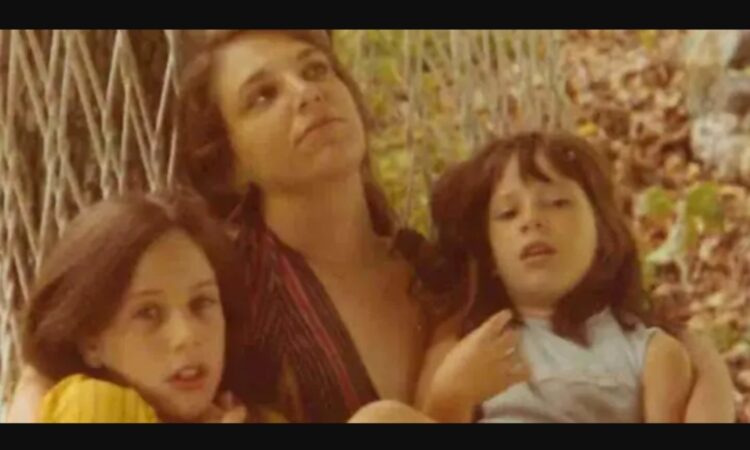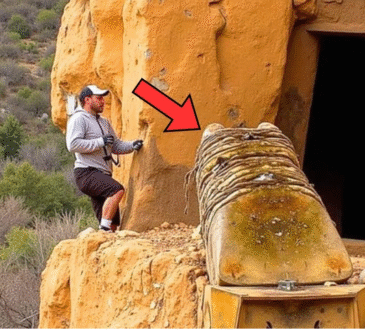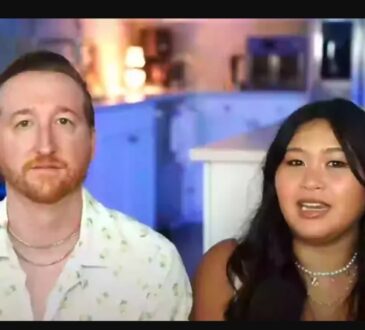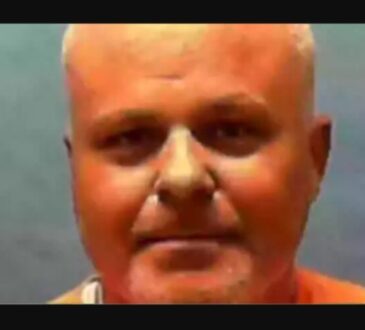My Mom Abused Me For Years. After She Died, I Was Overwhelmed By What I Discovered In Her Diaries

When I was 30, I still felt the same fear I did as a little girl, hiding under my bed to escape my mother’s beatings. I had spent most of my adult life acting like none of it had happened, pretending I wasn’t hurt. But my mother had been in therapy for years, trying to come to terms with the pain she caused me and my sister when we were kids.
She asked me to come with her to her therapist’s office in San Francisco. I didn’t want to go. I didn’t feel like I needed an apology, but I went anyway. When the session started, my mom pulled out a list she had written: “The 40 most unforgivable things I’ve ever done to my daughters.”
She looked nervous, playing with her scarf, trying to keep her clothes neat. I sat stiffly across from her, feeling uncomfortable and wishing I was anywhere else. My mom and dad had met young and married at 19. She had me when she was 20. After I was born, she got addicted to drugs—first to lose weight, then to sleep. My parents divorced when I was seven. Dad moved to Mexico. Mom stayed in New York with us.
My mom had spent decades trying to deal with her guilt and get better. She had been sober for 20 years by then. She wanted this session to be a real, honest moment of asking for forgiveness. We’d had many peaceful visits before, but we never talked about the past. This time, we would.
Her therapist, Terry, told me the session was for my mom. She wanted me to hear her say she was sorry. Terry also made it clear: saying sorry didn’t make the past okay.
Mom started reading from her list. The first story hit me hard: when I was five, she locked me in the garbage room and told me I was being thrown away. As she read, I felt like I was back in that moment—small, afraid, helpless.
She kept going: strangling me, yanking us by our hair, hitting us late at night, forcing us to clean in the early hours of the morning, screaming that she wished we’d never been born, letting drug dealers into the house, and hosting “primal scream” therapy sessions with adults shouting terrible things while we listened from our rooms.
It became too much. I couldn’t breathe properly. I was shaking. My body hurt just from hearing it all again. Finally, I said, “Mom, I forgive you.” I didn’t truly feel it yet—but I said it.
Mom looked devastated, her face pale. She whispered, “I can’t believe I hurt my own babies like that.”
After the session, we went to lunch as planned, but I had no appetite. I felt numb. The smells from the restaurant didn’t comfort me. She looked at me and asked how I could even sit near her. I said something I didn’t mean: “Because I love you. We can move on now.”
I’d always tried to earn her love as a kid. That hadn’t changed. Even though I felt angry, I kept pretending everything was fine. I said the food was delicious, but I couldn’t taste anything. I was just full of sadness and confusion.
Still, hearing her apologies had an effect on me. It opened the door. I knew, deep down, I’d need to start my own healing. I wasn’t ready yet, but the moment had planted the seed. It took another ten years before I started therapy myself.
People who knew what I’d been through couldn’t understand why I kept seeing my mom. But our story was complicated. She tried to change. When I was in seventh grade, she was suicidal and nearly gave up. Instead, she found Buddhism and started chanting. She asked me to try chanting too, just for 100 days. I did it to prove her wrong, but I started to feel something new—hope. She softened. She got off drugs. She stopped hitting us.
We started a spiritual journey together. I felt, for the first time, that she loved me in a real way. I stayed close to her because of that shift. She started therapy soon after. She worked hard to change. Her apology at age 50 was a turning point for both of us.
Years later, I got really sick. I was diagnosed with severe ulcerative colitis. A Reiki healer asked if I had ever been through trauma. I brushed it off and said, “Yeah, my mom used to hit me a lot, but that was forever ago.” She told me plainly, “That’s exactly why you’re sick.”
That’s when I finally started working on my own healing. Therapy helped me understand what I’d buried for years.
My mom passed away from diabetes 10 years into my healing journey. She was only 69. Even though our past was painful, I’m grateful we shared good times later in life. I never thought that would be possible.
Before she died, she looked at me and asked, “How can you truly love me?” This time, I answered honestly: “I do love you. You can let go. I’ll be okay.”
After her death, I found her old diaries and the original list of the things she regretted. It was ten pages long. Reading it, I saw just how deeply she regretted everything, and how much she wanted me to be happy.
My mom stopped the cycle of abuse. Because she changed, I was able to change too. I still chant. I still go to therapy. And now, I don’t just hear her anger in my head—I hear her love, her apologies, her courage. And every time I remember, I forgive her again. She taught me how even the darkest past can lead to light. That’s the truest kind of love I’ve ever known.




